|
By Wolfgang H.Thome
January O3, 2016
REFLECTIONS ON THE
CALABAR CARNIVAL - AFRICA'S LARGEST STREET PARTY
LOOKING FORWARD TO
CALABAR 2016

When Ikechi Uko, a few days prior to Christmas,
called to invite me to attend the African
continent’s largest carnival street party, Calabar
in Cross River State, was I torn between grabbing
the ever packed suitcase and rushing to the airport
or honouring commitments made for the festive season
to family and friends.
The latter prevailed when the pointed comment was
made to look for a new family somewhere along the
lanes normally travelled if the already extensive
absence from home – in 2015 I traveled as much as 70
percent across the year – would now be extended to
the Christmas and New Year period too.
Thankfully did Denis Gathanju of Safari
Communications in Nairobi not have such sentiments
to deal with and so he did grab his suitcase and
traveled to Nigeria, promising to file a review of
his experience as soon as he had returned to Kenya.
That said, Ikechi Uko already got my acceptance for
the 2016 festival confirmed and that gives me a good
11 months to prepare the ground of being away for
the Festive Season 2016.
Read on to get his first hand experience of the
Calabar Carnival:
Celebrate
Culture
Reporting
from Africa’s biggest street bash – Calabar
Carnival
By Denis
Gathanju, Safari Communications Nairobi
When the Nigerians said that the Calabar Carnival is
the largest street party in Africa, I chose to take
that statement with some slight reservations. The
Nigerians already have the largest economy and
population on the African Continent. Now they lay
claim to hosting the largest street bash in Africa?
I will only elieve it when I see it. So, I thought
to myself.
The carnival is hosted in the city of Calabar in
Cross River State in south-eastern Nigeria over a
30-day period. However, it hits a crescendo in the
last week of December, just between Christmas and
the eve of the New Year.
This year, and for the first time in the carnival’s
12-year history, the organizers toyed with the idea
of hosting the local carnival alongside the
international carnival, which was taking place for
the first time. The organizers went a notch higher
to spice up the event and invited bikers who brought
their loud and big mean machines to town. A hundred
strong delegation of bikers from all over Nigeria
and the African Maghreb descended into Calabar and
with them, they brought in a crowd of another 500
motorbiking enthusiasts.
And that marked the recipe for some controlled chaos
– if there is anything like it.
The city of Calabar welcomed to its shores a total
of 10 international teams drawn from Kenya, Rwanda,
Burundi, Zimbabwe, Ghana, Brazil, Belize, Italy,
Spain and France.
Logistical Nightmare
However, it was the organization of the
international teams that generated a logistical
nightmare for the organizers. Right from receiving
the international teams at the international airport
in Lagos and organizing their entry visas to
checking-in the international teams at their
respective hotels in Calabar; the organizing
committee of the Calabar Carnival seemed to be
overwhelmed and not have made adequate plans to
receive such a large number of people coming from
overseas.
Moreover, the diary of events from the first day to
the last day of the carnival was not readily
available leading to more confusion amongst the
international participants. Some did not know where
they were supposed to be at specific times or when
and where they were supposed to perform. The
logistical challenges were glaringly obvious to both
the organizers and the international visitors.
However, the hiccups seemed to quickly fade into the
distance when the carnival was finally flagged off
by the Governor of Cross River State H.E. Senator
Professor Ben Ayade. This was clearly what the
doctored had ordered as everyone was looking forward
to having a wonderful time together. And so the
music played, the bands marched, the flags waved.
The biggest street party in Africa was now underway.
The grand march of the carnival started at Calabar’s
Millennium Park with the first teams to arrive on
the grounds being Kenya and Italy. They were met by
a large number of both local and visiting Nigerians
who had converged into the city to witness the
carnival. It was selfie and groupies galore with the
residents keen on snapping memorable pictures with
the cultural groups adorned in their cultural garb.
Order and
Co-operation
Also in attendance were visitors and observers from
all across West Africa and the rest of the world.
Theirs was to experience the continent’s largest
street bash. And indeed, it was time to make merry
as soon as Governor Ayade cut the tape to official
kick-start the Calabar Carnival 2015.
With the governor were a number of high-ranking
government officials from the Cross River State as
well as other invited guests. These included members
of the Cross River government, legislature,
ambassadors and high commissioners and Nollywood
stars.
The carnival slowly made its procession through the
streets of Calabar. But what seemed to be quite
interesting is that in spite of the carnival
attracting more than 2.5 million people over a
three-day period, there was so much orderliness and
untold patience, especially by the huge crowds of
people that patiently waited along the route of the
carnival and at the Calabar Stadium in central
Calabar. To me, this seemed so much unlike Nigeria.
It was a pleasant surprise.
On the first 2 days of the carnival, the show ran
non-stop for 48 hours. Ikechi Uko one of the key
personalities involved, especially with the
international visitors said thus: “The procession
was so long that the head became the tail, quite
literally.”
I was pleasantly surprised by the co-operation the
entire city of Calabar and its citizens gave to the
organizers and the participants. The procession
snaked through commercial and residential areas
where residents would patiently sit on the sidewalks
and along the roads dancing, waving and cheering. In
the commercial areas, companies would put up tents
of all sizes and invite their employees and clients
to sit under the shade as snacks and soft drinks
were served. In the residential areas, families
brought chairs from their houses and invited their
friends, neighbours and relatives to sit by the
road-side to watch the procession.
There were four official stop-over points along the
entire route, but due to the size of the crowds,
participating teams decided to walk a little bit
longer just to entertain the swelling crowds while
some teams made unscheduled stops to offer the
enthusiastic visitors a taste of their cultural
dances.
To ensure that the show got the coverage it
deserved, there was a battery of accredited
journalists from across Nigeria and the rest of the
world. The event was covered live on multiple
television channels that included DSTV, Ebonylife
and the Cross River Broadcasting Corporation (CRBC).
Green
Carnival
This year’s theme of the carnival was also cognizant
of the fact that global warming was making a
negative impact on the environment. Cross River
State is one of the greenest states in Nigeria and
also plays host to the last remaining virgin
tropical rainforest in the country.
Governor Ayade and his government are alive to this
fact and made it clear that they wanted to engage
the residents and all the participating teams and
visitors coming for the Calabar Carnival to the need
of preserving and protecting the environment.
He announced the Green Carnival, which ran on the
third and final day of the carnival. The city of
Calabar has designated a park where residents and
visiting teams were given tree seedlings to plant.
According to Governor Ayade, the State Government of
Cross River State plans on planting more than 5
million trees under this campaign to ensure that the
state and his government play a role towards helping
save our planet.
And after the flags stopped waving, the bands
stopped marching and everyone returned to their
homes, the organizers and the visiting teams agreed
that this was one of the best carnivals, in spite of
the logistical challenges. The organizers were sent
back to the situation room to plan for the Calabar
Carnival 2016.
Mark your diaries and come attend Africa’s most
vibrant events ever. See you all in Calabar.
“If
You Build It- They Will Come.”
I AM
CALIBAR ...
West
Africa's Showcase of Sustainable Tourism
by Jerry W. Bird
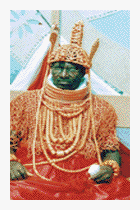 
I
am Calabar, an historic seaport city and former
slave trading post, strategically located on the
Atlantic Coast near the Cameroon border. I am
capital of Nigeria's Cross River
State
and
considered the future superstar of West African
tourism. That bright, shiny future is just around
the corner according to the Governor's active
timetable. In
terms of economic potential, I am located near Port
Harcourt, heart of Nigeria's petroleum industry, a
magnet for business travelers from all corners of
the world.
What about my
mission for the new millenium?
I
was selected host city for the Africa Travel
Association's 10th Cultural and Ecotourism
Symposium, a prestige event that attracts tourism
industry executives from North America and the
world. What was the key factor for this decision?
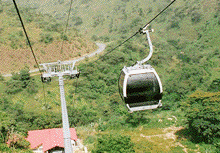 The
answer lies in the federal and state governments'
new focus on tourism
infrastructure
, with three world class megaprojects well underway
and coming into play at the very same moment, with
2007 being the pivotal year. This combination
affects the fortunes of the city, state and country
in a positive manner and will be a magnet for
further trade, tourism and investment in the area.
Members of the Africa Travel Association (ATA)
contingent from the USA and Canada saw the big
picture at a glance, and felt it in the unbounded
optimism of their Nigerian hosts. The
answer lies in the federal and state governments'
new focus on tourism
infrastructure
, with three world class megaprojects well underway
and coming into play at the very same moment, with
2007 being the pivotal year. This combination
affects the fortunes of the city, state and country
in a positive manner and will be a magnet for
further trade, tourism and investment in the area.
Members of the Africa Travel Association (ATA)
contingent from the USA and Canada saw the big
picture at a glance, and felt it in the unbounded
optimism of their Nigerian hosts.
"The
successful hosting of the Africa Travel Association
(ATA) Ecotourism summit by the Cross River State
government will go a long way in changing the face
of the country's tourism." Sumonu
Bello-Osagie , Nigerian Consulate , New
York.
 The
visitors from ATA were shown each of these
megaprojects in the following order (1) An
outstanding waterfront development that will change
the face of the city dramatically and become a
focus for enhanced marine tourism and river
cruises. (2) The giant Tinapa Business and Leisure
Park, where engineer Len Dickinson gave the group a
presentation and walking tour through this
fascinating area that will be West Africa's first
Free Trade Zone, and (3) The Obudu Cattle Ranch,
operated by Protea Hotels of South Africa, a
pleasant drive from Calabar on good roads, or a
short hop by aircraft or helicopter. What's more, a
modern gondola system whisks visitors to the broad,
upper plateau from a theme park on the lower road
not far from the Obudu Ranch airstrip. Expect much
more to come on the big three plus more impressions
of this exciting city, which is old in terms of
history, but young in terms of
spirit. The
visitors from ATA were shown each of these
megaprojects in the following order (1) An
outstanding waterfront development that will change
the face of the city dramatically and become a
focus for enhanced marine tourism and river
cruises. (2) The giant Tinapa Business and Leisure
Park, where engineer Len Dickinson gave the group a
presentation and walking tour through this
fascinating area that will be West Africa's first
Free Trade Zone, and (3) The Obudu Cattle Ranch,
operated by Protea Hotels of South Africa, a
pleasant drive from Calabar on good roads, or a
short hop by aircraft or helicopter. What's more, a
modern gondola system whisks visitors to the broad,
upper plateau from a theme park on the lower road
not far from the Obudu Ranch airstrip. Expect much
more to come on the big three plus more impressions
of this exciting city, which is old in terms of
history, but young in terms of
spirit.
 Visit
my Slave History Park and the International Museum
with its many relics of the British Empire and
mementos of local chiefs and colonial dignitaries.
You will discover that I have been inhabited for
two millennia, being discovered by European
navigators as early as the
1400s.
Prior to
independence
I was the former seat of Government of Niger Coast,
Southern and Oil River Protectorates. Other visitor
attractions include the Botanical Gardens, Sports
Stadium Complex and University of
Calabar. Visit
my Slave History Park and the International Museum
with its many relics of the British Empire and
mementos of local chiefs and colonial dignitaries.
You will discover that I have been inhabited for
two millennia, being discovered by European
navigators as early as the
1400s.
Prior to
independence
I was the former seat of Government of Niger Coast,
Southern and Oil River Protectorates. Other visitor
attractions include the Botanical Gardens, Sports
Stadium Complex and University of
Calabar.
I
have become a showcase for another valid reason -
being considered the nation's cleanest city - and
perhaps the model for all of Africa. How did it
happen in such a short time? Perhaps it was
inspired by the same human urge for beauty, order
and cleanliness that made "America
in Bloom"
such a huge sucess in transforming entire
communities, setting up a healthy competition
that's bound to catch on worldwide. Here are some
comments in that regard relating directly to
Calabar
 “The
cleanliness of Calabar's is amazing to Nigerian
visitors to the city and even those who haven't
been there have heard of how clean it is. So
much so that the Federal Capital Territory (FCT)
Minister, Mallam Nasir Ahmad el-Rufai who wants to
make Abuja the Singapore of Africa in terms of
beauty, had to pay a pilgrimage to Calabar to see
things for himself and find out from Duke and his
team how they did it."\ “The
cleanliness of Calabar's is amazing to Nigerian
visitors to the city and even those who haven't
been there have heard of how clean it is. So
much so that the Federal Capital Territory (FCT)
Minister, Mallam Nasir Ahmad el-Rufai who wants to
make Abuja the Singapore of Africa in terms of
beauty, had to pay a pilgrimage to Calabar to see
things for himself and find out from Duke and his
team how they did it."\
"With
so many Nigerian cities overflowing with refuge and
generally lacking in cleanliness and hygiene one of
the things Duke did when he became Governor was
clean up the major cities in the state, implemented
a maintenance strategy to ensure they remained
clean, including a zero tolerance policy for people
who choose to throw waste around. Waste management
in Calabar is very efficient. The city is organized
into 45 cells and given to private contractors to
manage. The contractors are responsible for
street-sweeping and waste management and
contractors are immediately replaced if they fail
to perform.”

I am a
pleasant riverside community located amidst lush
tropical forests and saltwater swamps. Thanks to an
ideal climate, my public markets offer a bountiful
array of fresh seafood, plus pineapples, bananas,
plantains, cassava and palm oil products. I was the
former capital of Britain's Southern Nigeria
Protectorate and its main eastern port to the Gulf
of Guinea. For the Efik people, I was the
traditional cultural centre. Along the river in Old
Calabar, an area now being enhanced and
redeveloped, are a number of attractive colonial
homes and government buildingss. Most ot the homes
were shipped from Liverpool and assembled on site.
As museum visitors will note, many local chiefs had
their private homes sent, complete with period
furniture, from England. Some adopted British
names, such as the Henshaws, Dukes and James.
Scottish missionary Mary Slessor arrived here in
1878 and became a well known figure. Later, the
Dunlop Company established rubber plantations in
the area, providing employment.
Photo:
Wild
Drill Ranch,
Calabar.
"Many
who pick a holiday destination in Africa opt for
Kenya, South Africa, Tunisia or perhaps Morocco.
But the city of Calabar in Nigeria -- Africa's most
populous nation, a global oil producer and a
continental powerhouse -- probably doesn't figure
high on many destination lists. It's remote, even
for Nigerians. But the governor has grand plans to
change all that."
NPR
Tinapa -
Birth of a Super Oasis
 Tinapa
is the resort that means business &endash; the
business of combing business, pleasure and leisure!
This will be the first time that anything like this
has been experienced in West Africa. No longer will
you need to go to Europe, the Far East or America
to enjoy the best entertainment, shopping and
leisure facilities the world has to offer! The
total Tinapa complex is massive &endash; 80 000 m2
of retail and wholesale emporiums alone. The
emporiums feature a borderless, seamless shopping
environment - a unique concept that unfolds a new
dimension in retailing for the first time in
Africa's history! These massive 21st century
shopping emporiums will be supported by a vast
array of retailers offering everything from
exclusive bookshops, specialty CD and DVD outlets,
pharmacies to beauty salons, banks and jewellery
stores! Plus an incredible entertainment centre
including cinemas, food court, internet cafe and
games arcade! There will be a dazzling range of six
hotels to choose from - accommodation to suit a
variety of lifestyles and budgets. The magnificent
waterfront development incorporating a Fisherman's
Wharf, will showcase even more restaurants, bars
and tourist kiosks. Imagine, after an endless night
of fun, enjoying a champagne breakfast whilst
watching a beautiful sunrise over the azure waters
of the Calabar
River!
Continued Tinapa
is the resort that means business &endash; the
business of combing business, pleasure and leisure!
This will be the first time that anything like this
has been experienced in West Africa. No longer will
you need to go to Europe, the Far East or America
to enjoy the best entertainment, shopping and
leisure facilities the world has to offer! The
total Tinapa complex is massive &endash; 80 000 m2
of retail and wholesale emporiums alone. The
emporiums feature a borderless, seamless shopping
environment - a unique concept that unfolds a new
dimension in retailing for the first time in
Africa's history! These massive 21st century
shopping emporiums will be supported by a vast
array of retailers offering everything from
exclusive bookshops, specialty CD and DVD outlets,
pharmacies to beauty salons, banks and jewellery
stores! Plus an incredible entertainment centre
including cinemas, food court, internet cafe and
games arcade! There will be a dazzling range of six
hotels to choose from - accommodation to suit a
variety of lifestyles and budgets. The magnificent
waterfront development incorporating a Fisherman's
Wharf, will showcase even more restaurants, bars
and tourist kiosks. Imagine, after an endless night
of fun, enjoying a champagne breakfast whilst
watching a beautiful sunrise over the azure waters
of the Calabar
River!
Continued
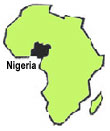 "The
Federal Government of Nigeria in its determined
efforts to develop at promote tourism into
economically viable industry had in 1991 evolved a
tourism policy. The main thrust of the policy is to
make Nigeria a prominent tourism destination in
Africa, generate foreign exchange, encourage even
development, promote tourism-based rural
enterprises, generate employment, accelerate
rural-urban integration and foster sociocultural
unity among the various regions of the country
through the promotion of domestic and international
tourism. It also aims at encouraging active private
sector participation in tourism development
" "The
Federal Government of Nigeria in its determined
efforts to develop at promote tourism into
economically viable industry had in 1991 evolved a
tourism policy. The main thrust of the policy is to
make Nigeria a prominent tourism destination in
Africa, generate foreign exchange, encourage even
development, promote tourism-based rural
enterprises, generate employment, accelerate
rural-urban integration and foster sociocultural
unity among the various regions of the country
through the promotion of domestic and international
tourism. It also aims at encouraging active private
sector participation in tourism development
"

More
About Calabar
Tinapa
Project
Obudu
Ranch
|
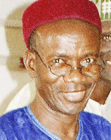
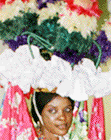
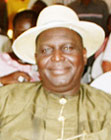



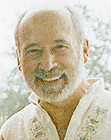
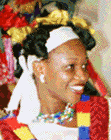
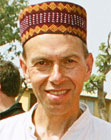

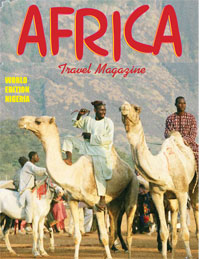



 The
answer lies in the federal and state governments'
new focus on
The
answer lies in the federal and state governments'
new focus on  The
visitors from ATA were shown each of these
megaprojects in the following order (1) An
outstanding waterfront development that will change
the face of the city dramatically and become a
focus for enhanced marine tourism and river
cruises. (2) The giant Tinapa Business and Leisure
Park, where engineer Len Dickinson gave the group a
presentation and walking tour through this
fascinating area that will be West Africa's first
Free Trade Zone, and (3) The Obudu Cattle Ranch,
operated by Protea Hotels of South Africa, a
pleasant drive from Calabar on good roads, or a
short hop by aircraft or helicopter. What's more, a
modern gondola system whisks visitors to the broad,
upper plateau from a theme park on the lower road
not far from the Obudu Ranch airstrip. Expect much
more to come on the big three plus more impressions
of this exciting city, which is old in terms of
history, but young in terms of
spirit.
The
visitors from ATA were shown each of these
megaprojects in the following order (1) An
outstanding waterfront development that will change
the face of the city dramatically and become a
focus for enhanced marine tourism and river
cruises. (2) The giant Tinapa Business and Leisure
Park, where engineer Len Dickinson gave the group a
presentation and walking tour through this
fascinating area that will be West Africa's first
Free Trade Zone, and (3) The Obudu Cattle Ranch,
operated by Protea Hotels of South Africa, a
pleasant drive from Calabar on good roads, or a
short hop by aircraft or helicopter. What's more, a
modern gondola system whisks visitors to the broad,
upper plateau from a theme park on the lower road
not far from the Obudu Ranch airstrip. Expect much
more to come on the big three plus more impressions
of this exciting city, which is old in terms of
history, but young in terms of
spirit. Visit
my Slave History Park and the International Museum
with its many relics of the British Empire and
mementos of local chiefs and colonial dignitaries.
You will discover that I have been inhabited for
two millennia, being discovered by European
navigators as early as the
1400s.
Prior to
independence
I was the former seat of Government of Niger Coast,
Southern and Oil River Protectorates. Other visitor
attractions include the Botanical Gardens, Sports
Stadium Complex and University of
Calabar.
Visit
my Slave History Park and the International Museum
with its many relics of the British Empire and
mementos of local chiefs and colonial dignitaries.
You will discover that I have been inhabited for
two millennia, being discovered by European
navigators as early as the
1400s.
Prior to
independence
I was the former seat of Government of Niger Coast,
Southern and Oil River Protectorates. Other visitor
attractions include the Botanical Gardens, Sports
Stadium Complex and University of
Calabar. “The
cleanliness of Calabar's is amazing to Nigerian
visitors to the city and even those who haven't
been there have heard of how clean it is. So
much so that the Federal Capital Territory (FCT)
Minister, Mallam Nasir Ahmad el-Rufai who wants to
make Abuja the Singapore of Africa in terms of
beauty, had to pay a pilgrimage to Calabar to see
things for himself and find out from Duke and his
team how they did it."\
“The
cleanliness of Calabar's is amazing to Nigerian
visitors to the city and even those who haven't
been there have heard of how clean it is. So
much so that the Federal Capital Territory (FCT)
Minister, Mallam Nasir Ahmad el-Rufai who wants to
make Abuja the Singapore of Africa in terms of
beauty, had to pay a pilgrimage to Calabar to see
things for himself and find out from Duke and his
team how they did it."\
 Tinapa
is the resort that means business &endash; the
business of combing business, pleasure and leisure!
This will be the first time that anything like this
has been experienced in West Africa. No longer will
you need to go to Europe, the Far East or America
to enjoy the best entertainment, shopping and
leisure facilities the world has to offer! The
total Tinapa complex is massive &endash; 80 000 m2
of retail and wholesale emporiums alone. The
emporiums feature a borderless, seamless shopping
environment - a unique concept that unfolds a new
dimension in retailing for the first time in
Africa's history! These massive 21st century
shopping emporiums will be supported by a vast
array of retailers offering everything from
exclusive bookshops, specialty CD and DVD outlets,
pharmacies to beauty salons, banks and jewellery
stores! Plus an incredible entertainment centre
including cinemas, food court, internet cafe and
games arcade! There will be a dazzling range of six
hotels to choose from - accommodation to suit a
variety of lifestyles and budgets. The magnificent
waterfront development incorporating a Fisherman's
Wharf, will showcase even more restaurants, bars
and tourist kiosks. Imagine, after an endless night
of fun, enjoying a champagne breakfast whilst
watching a beautiful sunrise over the azure waters
of the Calabar
River!
Tinapa
is the resort that means business &endash; the
business of combing business, pleasure and leisure!
This will be the first time that anything like this
has been experienced in West Africa. No longer will
you need to go to Europe, the Far East or America
to enjoy the best entertainment, shopping and
leisure facilities the world has to offer! The
total Tinapa complex is massive &endash; 80 000 m2
of retail and wholesale emporiums alone. The
emporiums feature a borderless, seamless shopping
environment - a unique concept that unfolds a new
dimension in retailing for the first time in
Africa's history! These massive 21st century
shopping emporiums will be supported by a vast
array of retailers offering everything from
exclusive bookshops, specialty CD and DVD outlets,
pharmacies to beauty salons, banks and jewellery
stores! Plus an incredible entertainment centre
including cinemas, food court, internet cafe and
games arcade! There will be a dazzling range of six
hotels to choose from - accommodation to suit a
variety of lifestyles and budgets. The magnificent
waterfront development incorporating a Fisherman's
Wharf, will showcase even more restaurants, bars
and tourist kiosks. Imagine, after an endless night
of fun, enjoying a champagne breakfast whilst
watching a beautiful sunrise over the azure waters
of the Calabar
River!
 "The
Federal Government of Nigeria in its determined
efforts to develop at promote tourism into
economically viable industry had in 1991 evolved a
tourism policy. The main thrust of the policy is to
make Nigeria a prominent tourism destination in
Africa, generate foreign exchange, encourage even
development, promote tourism-based rural
enterprises, generate employment, accelerate
rural-urban integration and foster sociocultural
unity among the various regions of the country
through the promotion of domestic and international
tourism. It also aims at encouraging active private
sector participation in tourism development
"
"The
Federal Government of Nigeria in its determined
efforts to develop at promote tourism into
economically viable industry had in 1991 evolved a
tourism policy. The main thrust of the policy is to
make Nigeria a prominent tourism destination in
Africa, generate foreign exchange, encourage even
development, promote tourism-based rural
enterprises, generate employment, accelerate
rural-urban integration and foster sociocultural
unity among the various regions of the country
through the promotion of domestic and international
tourism. It also aims at encouraging active private
sector participation in tourism development
"